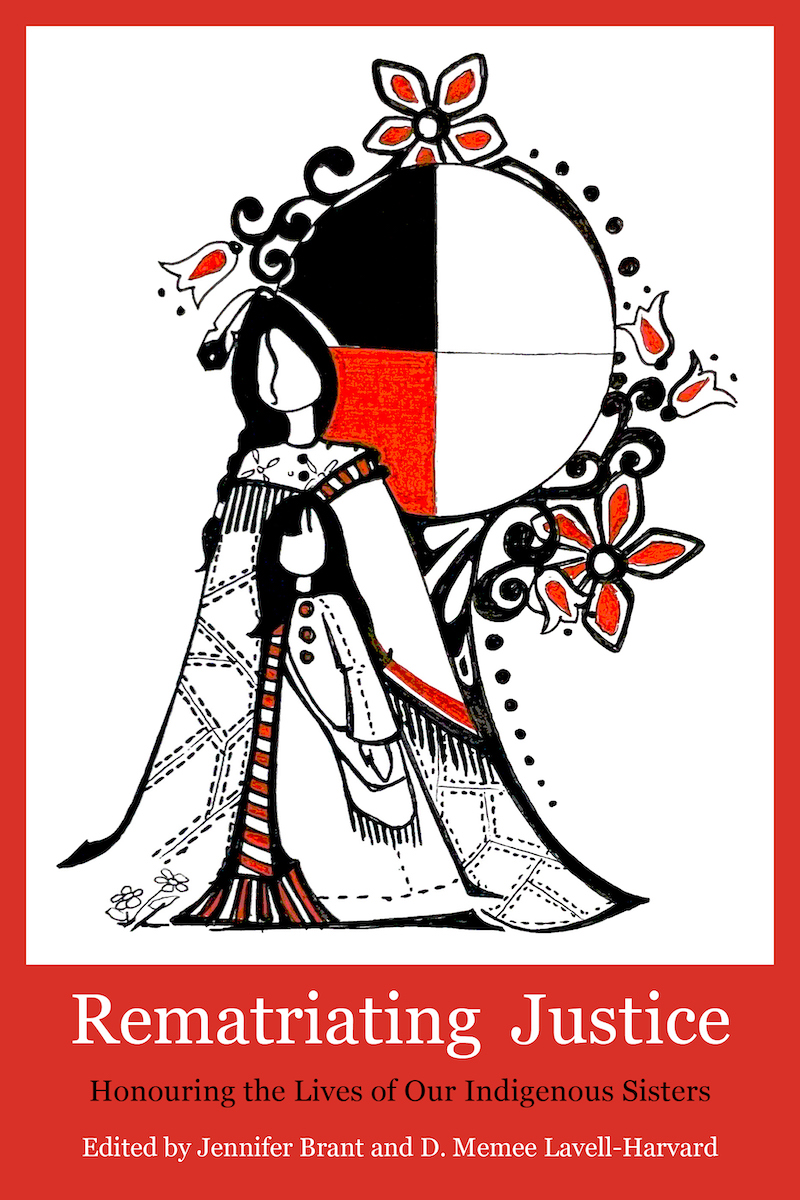
Price: $39.95
Page Count: 320
Publication Date: June 2024
ISBN: 978-1-77258-503-2
Grounding us in pluralities of perspectives Rematriating Justice takes readers on a journey inside Indigenous women’s realities. This timely collection unveils layers of patriarchal colonial oppression, urging readers to confront uncomfortable truths about racialized, sexualized and gendered violences. This collection empowers readers with voices and stories essential for igniting change. Highly recommended.
- Lisa Monchalin, Ph.D., Citizen of the Métis Nation of Ontario, Author of The Colonial Problem: An Indigenous Perspective on Crime and Injustice in Canada, Faculty in the Department of Criminology, Kwantlen Polytechnic University.
Education is power. This book exudes critical thought and unleashes the unfortunate and unacceptable past. Through a collection of essays, memoir and poetry, the stories enable readers to grasp the complexities associated with racialized, sexualized and gender-based violences, and better understand the active engagement needed to address the Calls to Justice.
My aunt is one of the many murdered women. I support this book in honour of her.
- Christina Reid, Member of the Mohawks of the Bay of Quinte. Executive Director, Jordan’s Principle.
Introduction: Jennifer Brant, Jo Billows, and D. Memee Lavell-Harvard Part One: Centering MMIWG2S+
1. Refusal and Reprisal: Colonial Fragility, Genocidal Violence, and the Murder of Helen Betty Osbourne - Robyn Bourgeois
2. Centralizing Indigenous Mothering in the Death of Chantel Moore – Josephine Savarese
3. Disrupting Mainstream Media Representations of Missing and Murdered Indigenous Women
and Girls – Sana Shah
4. Healing and Motherhood: In conversation with D. Memee Lavell-Harvard, Anne Taylor and
Sarah Lewis
Part Two: Community Action and Education to Address MMIWG2S+
5. Closing thoughts: River women collective’s reflections on the final ceremonial and artistic installation of Walking With Our Sisters. – Cheryl Troupe & Janice Cindy Gaudet
6. “A Walking with our Sisters Syllabus” by Rebecca Beaulne-Stuebing
7. Pedagogical Considerations on Teaching “Missing and Murdered Indigenous Women from a
Global Perspective” – Brenda Anderson
8. Human to Human – Chavelle Malcolm Poem
Part Three: Transforming Our Worlds
9. Indigenous Women’s Literature: The Power and Truth of our Words – Jennifer Brant
10. Disentangling Victimhood in Canadian Anti-Human Trafficking: A Transformative Justice
Response – Rosemary Nagy
11. Healing with Indigenous feminisms: the decoloniality of embodiment, self-love, and desire – Jo Billows
12. kimiyokîsikaw: Iskwêwak Reclaiming Sovereignty, A Love Letter from Decolonial Self- Lovers – Lana Whiskeyjack, Janice Cindy Gaudet and Tricia McGuire-Adams.
Conclusion/Paths Forward: A Virtual Tea with Maria Campbell and Kim Anderson - Jennifer Brant
Dr. Jennifer Brant belongs to the Kanien’kehá:ka (Mohawk Nation) with family ties to Six Nations of the Grand River Territory and Tyendinaga Mohawk Territory.
Jennifer is an Assistant Professor in the Department of Curriculum, Teaching, and Learning at the Ontario Institute for Studies in Education, University of Toronto where she writes and teaches about Indigenous maternal pedagogies and Indigenous literatures. Her work positions Indigenous literatures as educational tools to foster sociopolitical action and calls for immediate responses to racialized, sexualized, and gender-based violence.
Dr. Dawn Memee Lavell Harvard, Ph.D., is a proud member of the Wiikwemkoong First Nation, on Manitoulin Island and currently serves as the Director at the First Peoples House of Learning at Trent University. She was recognized as the first Indigenous Trudeau Scholar for her work in Indigenous education and has sought to advance the rights of Indigenous women and their families in various roles including her past presidency of the Native Women’s Association of Canada. She continues her advocacy through her current role on the Board of the Canadian Women's Foundation, the National Indigenous Women's Entrepreneurship Ecosystem, Roots of Empathy, Mothers Matter Centers, and the local Community Health Center.


